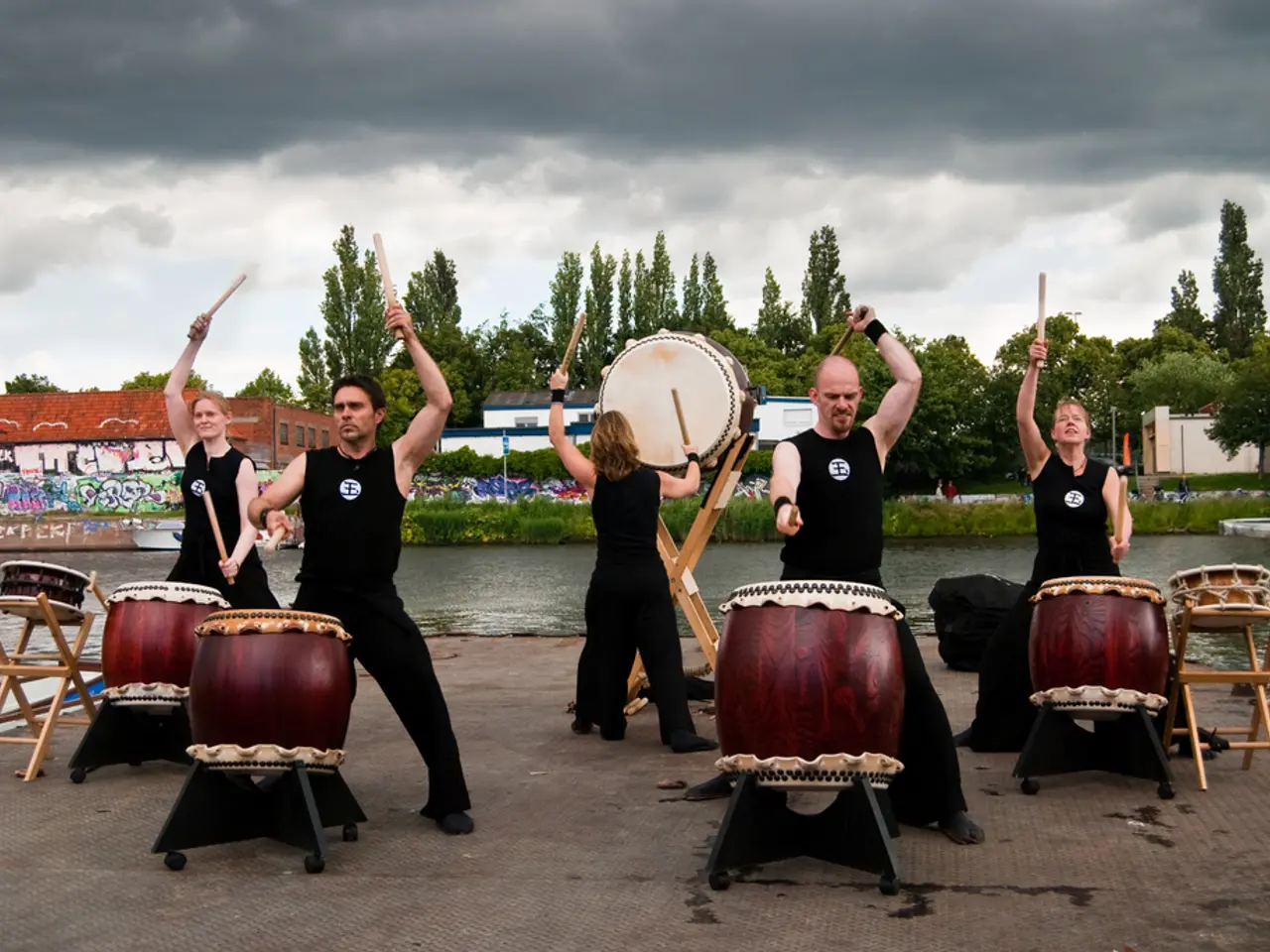Controversial figure Chris Hughes advocates strongly for relationship with TikTok sensation JoJo Siwa
In a surprising turn of events, Chris Hughes, the 32-year-old former Love Island contestant, has taken a stand for his love, JoJo Siwa, after a music industry professional criticised her music career on his Instagram Story.
Hughes found the comment disturbing, as he felt it was unnecessary for a professional in the industry to shame others publicly. He expressed his hope that his fellow industry professionals would refrain from unnecessarily targeting others and belittling their work.
The comment, which has since been deleted, was met with a strong response from Hughes. He addressed the cowardice, unprofessionalism, and rudeness of the music industry professional's actions, stating that such actions are not nice, not pretty, and not called for.
JoJo Siwa, a 22-year-old alum from Dance Moms, has been in a public romance with Hughes since they appeared together on Celebrity Big Brother. The criticism of Siwa's music career has led to internet trolling, but Hughes' public stand has sparked a conversation about the need for respect and support within the music industry.
This incident is not the first time music professionals have faced criticism or trolling. For example, artists like David Byrne and Neil Young have spoken out against Spotify's controversial business practices, while Vulfpeck faced removal from the platform for highlighting these issues. The use of AI in music production has also sparked ethical concerns, with figures like Timbaland facing criticism based on the impact on creator rights and industry fairness.
The response from peers and the public has been varied, with some advocating for ethical standards and industry reform, while others emphasize the potential benefits of technology in enhancing human creativity. Discrimination and harassment, particularly towards LGBTQ+ musicians and women, remain significant issues, with calls for increased diversity and safer workplaces.
In many cases, the community has rallied in support of criticized professionals, organising protests, raising awareness, and promoting ethical standards. For instance, UMAW's campaigns and music community discussions on inclusivity and AI ethics have been instrumental in advocating for change.
As Hughes continues to defend Siwa, the incident serves as a reminder of the importance of respect and support within the music industry. It also highlights the need for ethical standards and industry reform to prevent unnecessary criticism and trolling.
[1] UnionOfMusicians (UMAW). (n.d.). About. Retrieved from https://www.unionofmusicians.com/about [2] The Verge. (2021, March 11). How AI is transforming the music industry. Retrieved from https://www.theverge.com/2021/3/11/22325166/artificial-intelligence-music-industry-production-composition-timbaland [3] Billboard. (2021, February 18). The LGBTQ+ Music Community Calls for Change. Retrieved from https://www.billboard.com/articles/business/9475187/lgbtq-music-community-calls-for-change [4] Forbes. (2021, February 26). The Unreported Harassment Women In Music Face. Retrieved from https://www.forbes.com/sites/forbeswomen/2021/02/26/the-unreported-harassment-women-in-music-face/?sh=7e36e23f16a0
- Chris Hughes, in the face of criticism towards JoJo Siwa's music career, has ignited a conversation about the importance of respect and support within the music industry, emphasizing the need for ethical standards and industry reform to prevent unnecessary public shaming.
- As the music industry continues to evolve with advancements in technology, it's crucial to address and rectify pressing issues such as discrimination, harassment, and unprofessional behavior, particularly towards LGBTQ+ musicians and women, to foster a healthier and more inclusive environment for all.








